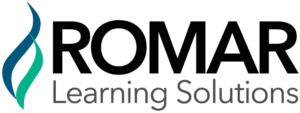
With unique skill sets and perspectives, every generation has something to offer within the workforce. However, managers must approach leadership with generational differences in mind. There is disagreement among researchers on the date ranges for each generation, but in general, here is the breakdown:
- Baby Boomers: Born 1946–1964
- Gen X: Born 1965–1979
- Millennials: Born 1980–1994
- Gen Z: Born 1995–2012
- Gen Alpha: Born 2013–2025
Romar Learning Solutions offers a few tips for managing a multi-generational team:
Leverage each generation’s strengths
Each generation and its skill sets are shaped by different educational, cultural, and social influences and what was happening in society during their formative years. Consider the economic and social climates when each generation entered the workforce and the technological advancements at the time. Recessions, pandemics, emerging technologies, and the introduction of remote/hybrid work have impacted how people of all ages perform their job functions.
While some generations demonstrate exceptional tech skills, others may excel in client-facing scenarios that require strong verbal communication skills. Know your team members well enough to leverage their strengths and delegate accordingly for organizational success.
Challenge generational stereotypes
You’ve likely heard some controversial opinions about each generation. For instance, Gen Z is often characterized as lacking loyalty and work ethic, while Boomers are labeled as inflexible. These generational stereotypes are often unfounded and can be divisive in the workplace. The truth is each generation has positive qualities and some qualities that are not so positive.
The best way to challenge and dismantle generational biases in the workplace is to focus on the overlaps between generations rather than their differences. Identifying similarities between team members is a great way to initiate effective teamwork.
Learn from one another
Once you have identified and embraced the key similarities between generations, you can leverage the differences to cultivate new learning opportunities. With a wide range of skills and expertise, there are no “skill gaps” because team members can learn from one another!
When assigning matrix projects, consider each team member’s skills and what their colleagues have to gain from this collaboration. Differences don’t have to be divisive; they are instrumental in individual and organizational growth.
Interested in developing your multi-generational teams? Romar Learning Solutions can help you create training programs that drive results! Contact us today.
Don’t forget to follow us on Facebook, Instagram, Twitter, and LinkedIn.




